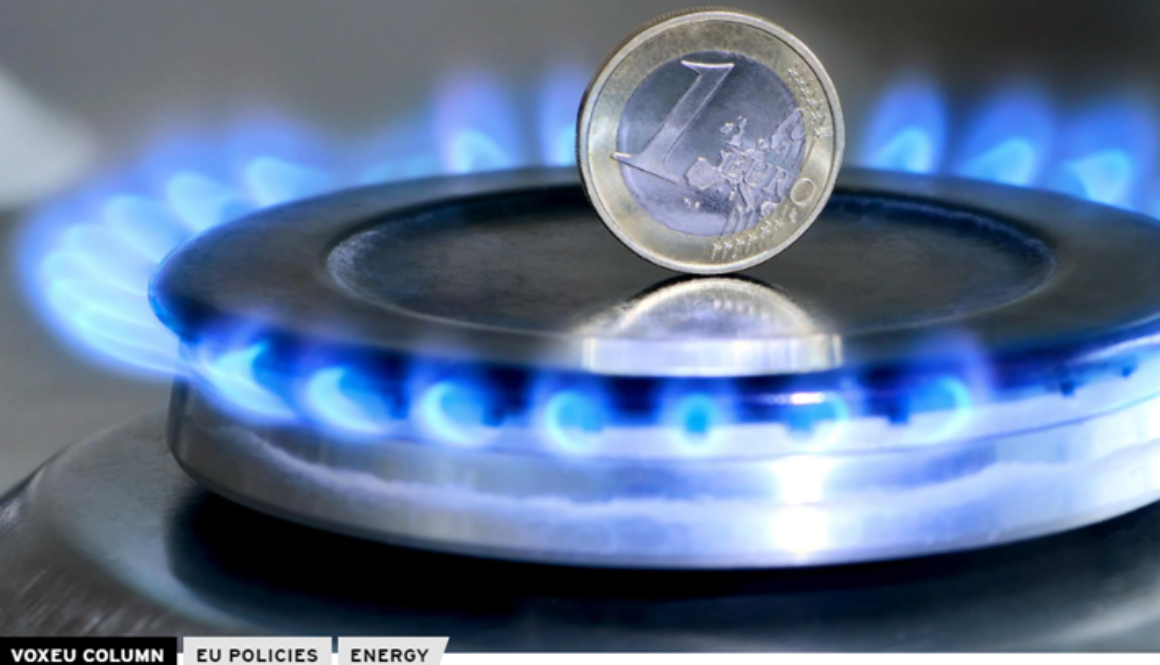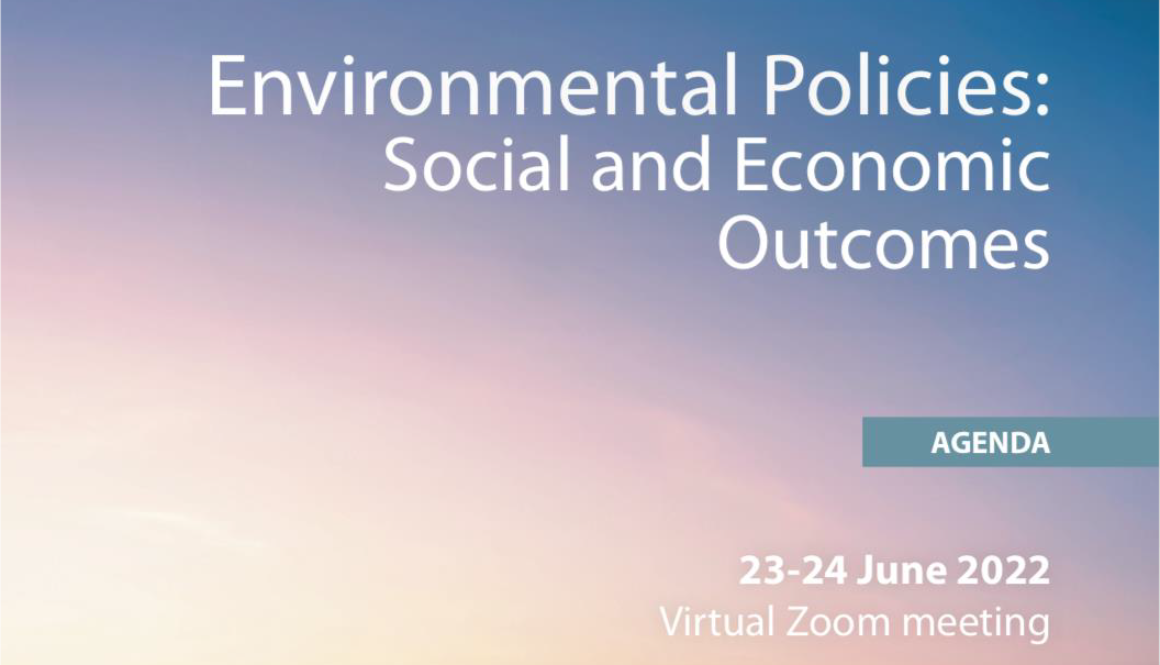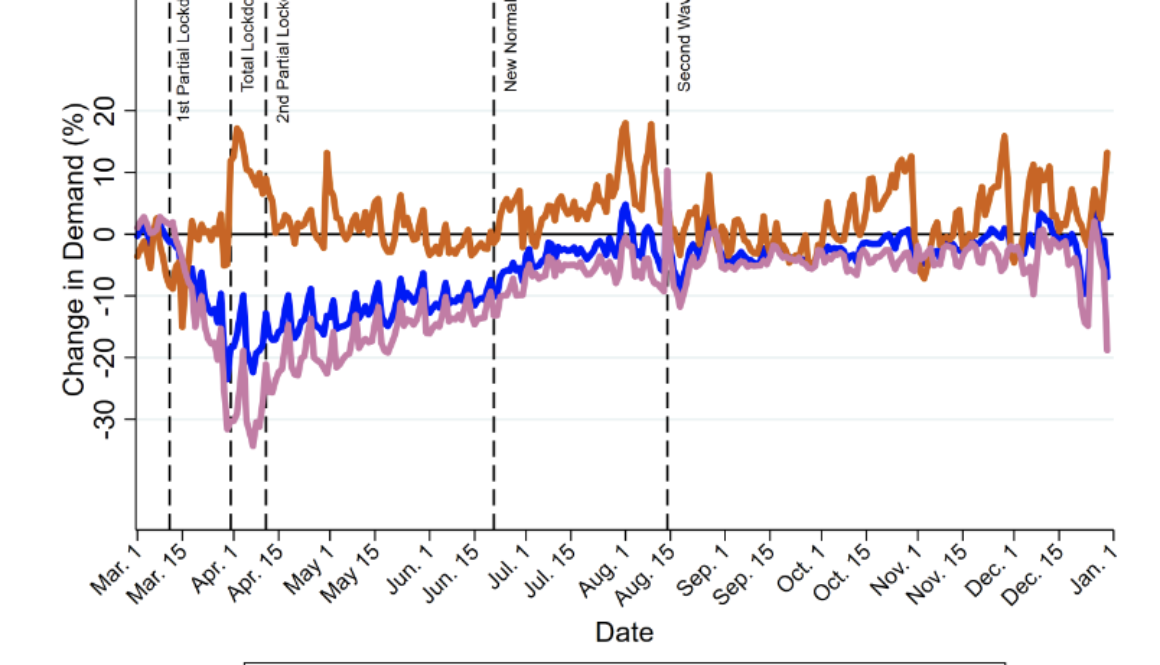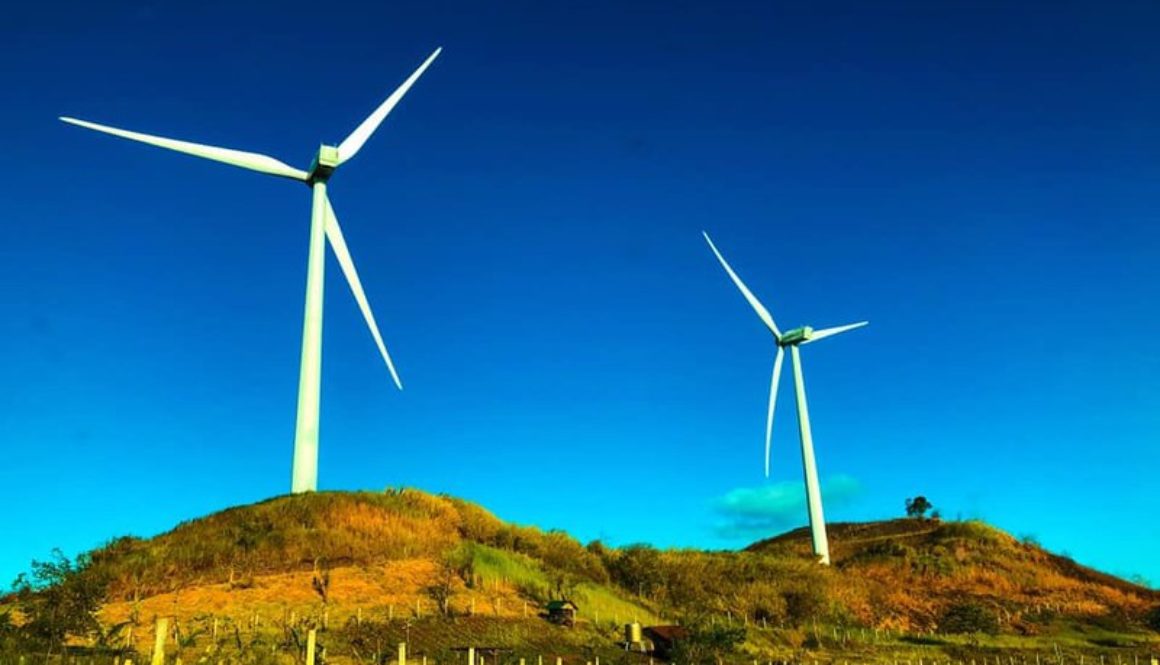The measures adopted so far by the EU have been insufficient to contain the impact of the gas crisis on firms and households. This column proposes an emergency gas policy package to deal with the crisis that threatens European economies and the security of supply. The proposal combines an EU-wide gas price cap with binding gas-saving targets and a continued strong price incentive for users to cut gas consumption. The authors explain how these three policy measures would work together, enhance credibility, address concerns about implementing a price cap, and could accommodate the needs of different EU member states.
Europe is unique in many ways – rather unfortunately so, in one way to do with energy. No other part of the world imports most of its pipeline and liquefied natural gas (LNG) with contracts that are based on short-term market prices. This has allowed Russia to announce and implement gas supply interruptions to drive up prices and thus revenues on all its gas sales. Russia’s strategy has inflicted even higher costs on EU economies as it has led to higher costs on gas imported from other countries and knock-on price increases in power markets, where electricity prices are often set by the cost of gas-fired generation.
As a result, European consumers are exposed to high and hugely volatile gas and electricity costs, raising affordability concerns for poorer households and survival concerns for energy-intensive companies competing in global markets. Since the Russian invasion of Ukraine, the gas market is being used as part of the overall warfare. Hence, the EU needs to implement a joint robust response to protect gas users from excessive risks while maintaining security of supply for households and industry.
So far, the focus of policymakers has been on national programmes compensating households and industry for cost increases – thereby imposing costs of hundreds of billions of euros for public budgets and leading to tensions between member states with differing funding capacities. Governments have also provided liquidity and guarantee programmes for firms and suppliers to ensure continued trading. This has, however, further escalated prices by incentivising firms to bet on even higher prices without the downside risk – which is born by governments.
Critical emergency measures for the gas sector
We believe that a combination of three elements is essential for a successful response to the gas crisis at the EU scale while also contributing to longer-run environmental objectives:
Binding gas saving targets: Lower gas demand in any EU member state reduces gas scarcity prices and the risk of supply interruptions for all other member states. Gas-saving targets help to internalise these tangible benefits in the decision-making process of member states to ensure the implementation of national information, engagement and advice programmes for gas-saving measures for households and industry. These targets need to be supported by a credible monitoring and governance process to build trust among EU partners, including penalties for countries that fail to comply with the gas-saving targets, especially during periods of Europe-wide gas shortages. Targets should be relaxed only for countries and during periods where the European Regulatory Agency (ACER) identifies that further savings will not benefit the other member states due to infrastructure constraints in pipeline and LNG shipping.
A price cap to avoid excessive gas prices: Demand and net supply of gas are highly inelastic once prices exceed the level at which the power sector and industry have shifted from gas to alternative fossil fuels (coal and oil) and have exhausted their energy efficiency opportunities. Hence, any potential scarcity can quickly escalate market prices. Uncertainty about potential supply remains high (see, for example, the explosion of Nordstream 1 pipelines), and has less to do with market fundamentals than with military conflict. An EU-wide price cap ensures that the effect of such uncertainties on forward markets no longer escalates prices, avoiding further damage to the European economies. Lower gas prices have the additional benefit of reducing the cost of electricity generation and the inframarginal rents for some technologies. Therefore, the gas price limit can also contribute to lowering Europe’s overall rate of inflation – by reducing both gas and electricity prices.
A commitment to retain strong incentives for gas saving: A regulatory gas price limit by itself reduces prices, avoiding the need for financial compensation to consumers, including all the distortions this can create for efficiency or across member states. However, the challenge is ensuring that strong gas-savings incentives are maintained despite the lower prices. One option is for member states to guarantee to all consumers a baseline consumption at the price limit while imposing a higher price for consumption above and below the baseline. This will preserve strong marginal incentives for gas savings. Furthermore, if all member states adopted such an incentive mechanism, then every company and household would be assured that other European actors face similar incentives.
The policy package: Why any one of these elements would not succeed on its own
Gas saving targets alone may not be sufficiently credible to retain gas prices within acceptable bounds in light of the extreme and continuing developments in gas markets. To discourage any supply disruptions and to moderate risk premia associated with such supply interruptions, it is therefore necessary to complement gas-saving targets with a price limit.
An EU-level price cap that binds will immediately reduce incentives for gas savings and also leave unspecified how scarce gas is to be allocated between different EU member states. Gas saving targets will (i) reduce gas consumption and enhance the incentive to save gas (before the cap becomes binding); and (ii) clarify the allocation of gas between member states in the case of a binding price cap.
Strong measures for gas saving are thus important to reinforce the credibility of the gas savings targets and to limit the role of the price cap. Achieving gas savings at the national level requires – if targets are tight – a variety of programmes and measures at the national level, all of which will be more effective if combined with incentives for short-term gas savings from higher marginal prices. Implementing such pricing structures will be supported at the national level if they are directly linked to the benefits from an EU-wide price limit – and therefore already agreed upon as part of a deal.
The policy package: How potential concerns can be addressed through policy design
Our proposed policy package can address legitimate concerns that are often voiced about price caps.
One concern about a price cap involves circumvention and credibility. Indeed, currently discussed proposals to impose a gas price limit only on exchange-based trading would trigger the unintended (and undesirable) consequence of shifting liquidity to bilateral trades – so-called over-the-counter (OTC) markets. To avoid this, governments would have to regulate all gas trading activities. If they are unwilling or unable to do so, they have to find other means to avoid circumvention.
One option to achieve this makes use of the Transmission System Operators’ (TSOs) imbalance mechanism. The TSOs are responsible for keeping the gas system in balance. So, if there are discrepancies between the gas inflows and deliveries nominated by market participants, TSOs have to buy or sell gas to make up the difference. They then impute the cost on the market participants responsible for the imbalance. The risk of potentially very high imbalance prices encourages all market participants to contract sufficient gas to be in balance. The proposal is for EU governments to mandate TSOs not to acquire imbalance gas above a price limit. This would limit the cost for imbalance gas and make market participants unwilling to sign new gas contracts at prices exceeding that limit. As a result, no supplier will be able to sell above the price limit; hence, they will all have to offer gas below the price limit. A small penalty would be imposed on imbalance prices to ensure that gas producers and utilities still find it attractive to contract bilaterally.
For the market to shift to the lower-price equilibrium, it is critical to ensure the credibility of the TSOs’ commitment not to buy above the price limit. To ensure this, the TSOs need access to additional instruments in case there is insufficient gas supply to meet demand at the price limit. These could involve reverse auctions to unlock additional gas savings from consumers at higher prices, storage options (for clearly constrained timeframes) and, if required, the curtailment of the demand of non-privileged consumers.
A second concern relates to the impact of a price limit on gas-saving incentives. This can nevertheless be avoided through a proper design of retail contracts, exposing consumption above a baseline to high prices (and, symmetrically, rebating any savings below the baseline at high prices). It is well-known to economists that ‘non-linear’ pricing can be used to moderate the overall cost of gas while simultaneously retaining strong gas-saving incentives at the margin. That a practical implementation of this principle is possible has already been recently demonstrated by several European countries with gas price limits that retain short-term gas-saving incentives.
A third concern is that a price limit will reduce gas available to the EU. While there is general agreement that gas production will continue at maximum capacity if the price limit is high enough (e.g. at €50/MWh, thus exceeding any historic price spikes), some actors are concerned that Europe will no longer be able to outcompete Asian countries so as to redirect gas towards the EU. Recent analysis of the IEA Gas Market Report (IEA 2022) shows that LNG was freed up thanks to fuel-shifting from gas to oil and coal in China, Korea, Japan, and India. For this fuel-shifting to be profitable in Asian economies without carbon pricing, gas prices in the range of €50/MWh would have been sufficient. Prices exceeding these levels were typically not passed to final consumers and could thus also not deliver demand reductions in Asia to free up the gas for EU demand. The IEA reports that the extremely high gas prices will likely have resulted in additional demand reductions, primarily in Thailand, Indonesia, and Bangladesh. However, these effects would not be large: LNG volumes redirected to the EU would represent an estimated 1% of EU demand.
Finally, there is a concern that a gas price limit would violate existing long-term import contracts. Yet, adjusting the TSO imbalance pricing structure as discussed above would retain wholesale price formation. Hence, indexation and contractual obligations would remain unaffected, avoiding any interference with existing or future long-term contracts.
Concluding remarks
The measures adopted so far by the EU have been insufficient to contain the impact of the gas crisis on firms and households. More decisive action is needed. Member states must try to find common ground beyond their recent opposing views on an EU gas price cap. We believe a three-step emergency plan combining (i) an effective regulatory gas price limit with (ii) binding gas-saving targets and (iii) measures that retain short-term gas-saving incentives could be up to this task and also address concerns raised by different member states.
There is much to gain for EU citizens and companies. They would obtain immediate relief and reassurance that everyone is acting together to solve this crisis. It would also save hundreds of billions of euros of public money used for national support programmes for households and industry. Furthermore, clarity that gas prices will remain within acceptable bounds will limit margin calls and counterparty risks, reducing the need for governments to provide guarantees that involve taxpayer risks at the scale of hundreds of billions of euros. While European unity is challenged, member states can choose to act resolutely and show that the EU really means to be stronger together.
Authors: Natalia Fabra, Karsten Neuhoff, and Nicolas Berghmans.
See the post here.










